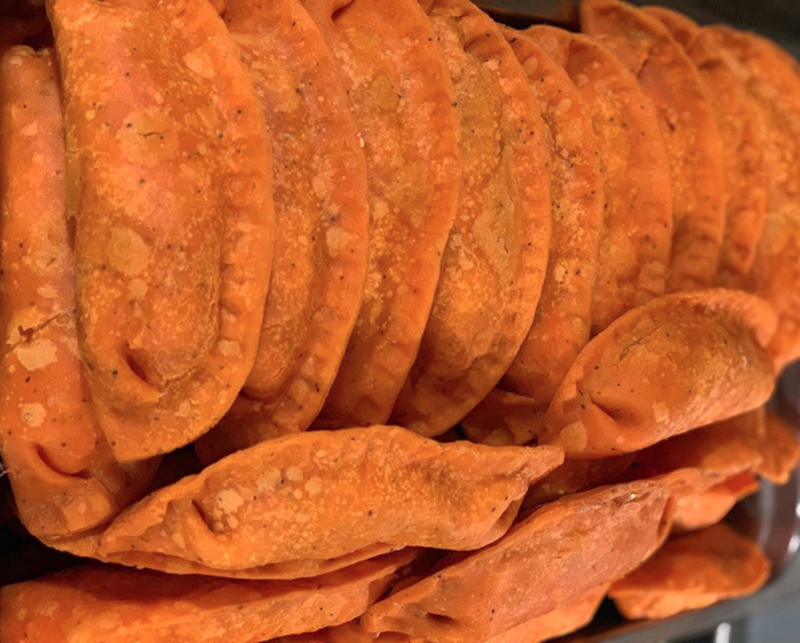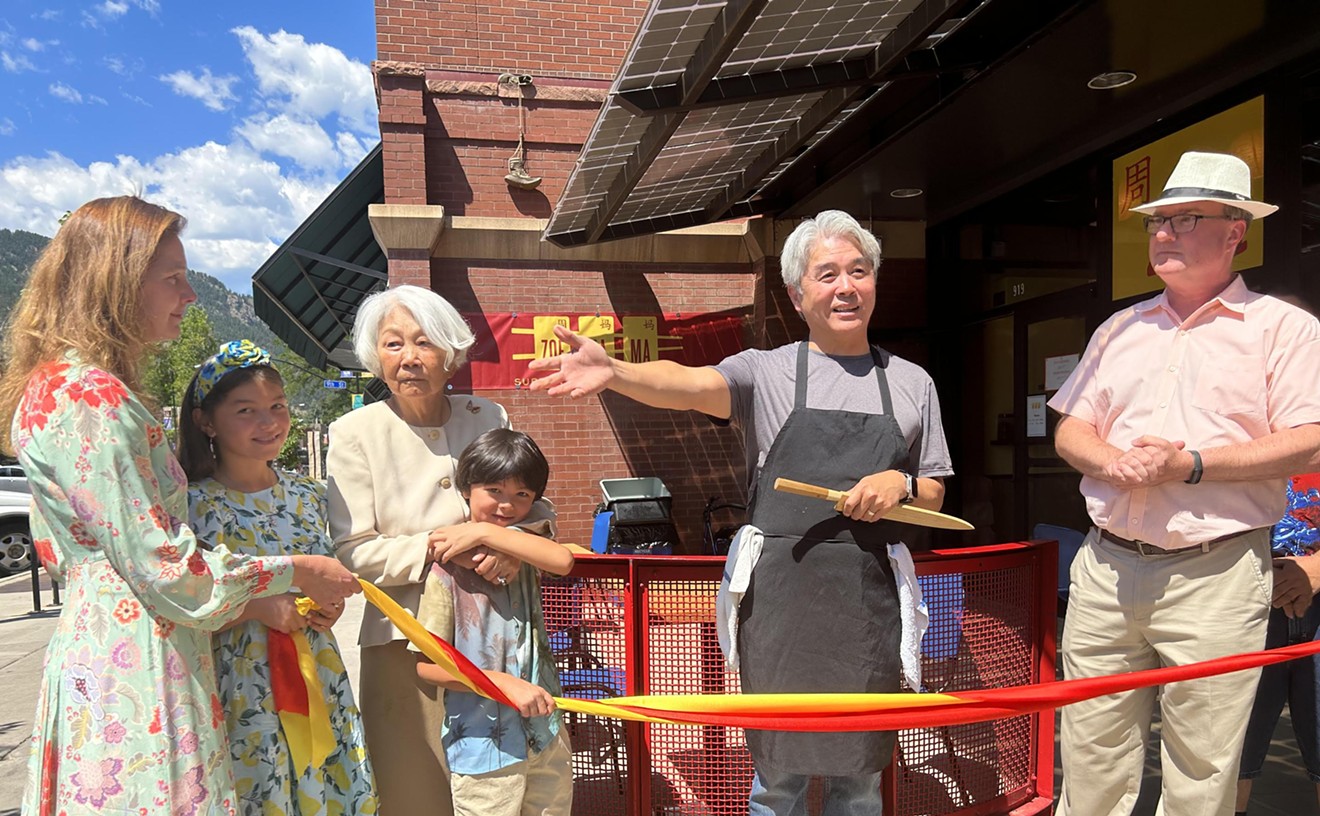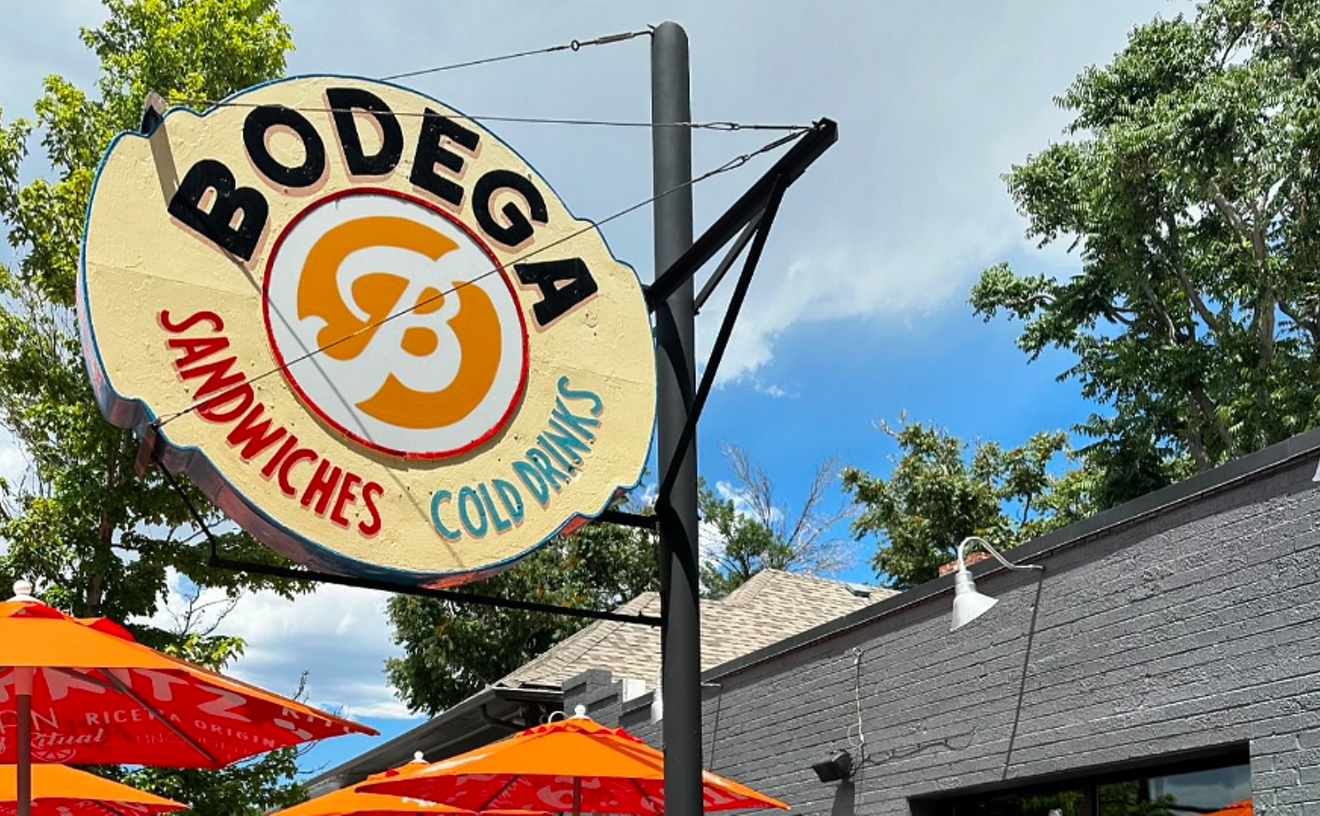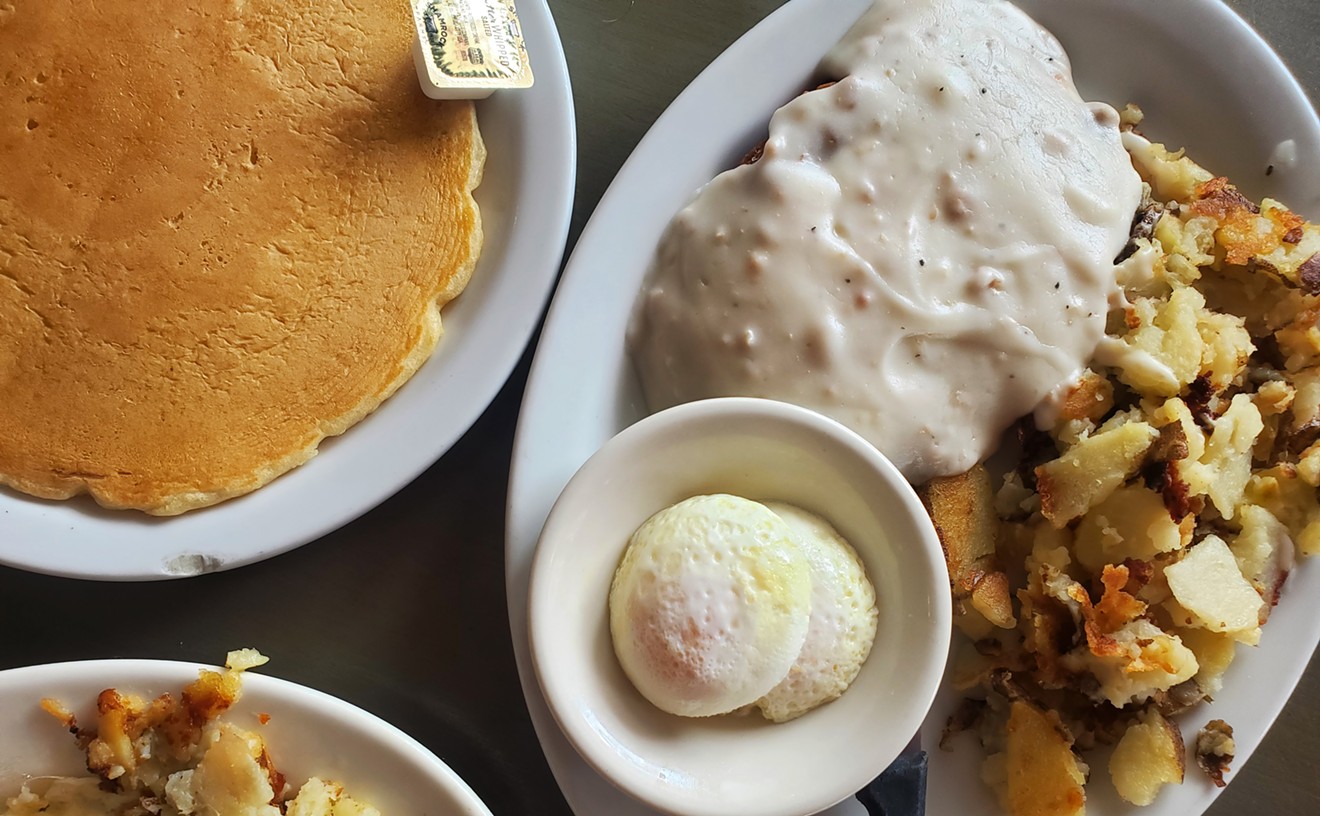Orange Crunch began as a food cart in the Denver area in 2012. It grew into a food truck and a catering business, and now, despite the setbacks of 2020, the Del Rosarios look forward to the opening of a brick-and-mortar restaurant in the spring of 2021. At its essence, Orange Crunch is about sharing a culinary tradition rooted in passed-down recipes and intertwined with the Del Rosarios' own authentic experience.
Leshner grew up in Batac, in the northern Philippines, and it was there, in 2011, that Sarah, his then-fiancée, was introduced to the village that raised him. Batac is also where Sarah was first introduced to the orange-tinted empanada that would become the signature dish at Orange Crunch. Filipino empanadas are made with rice flour (instead of wheat flour, like their Spanish cousins) and filled with shredded green papaya, mung bean, egg and additional fillings like meat and cheese. They get their vivid hue from the addition of achiote to the rice-flour dough. “It was the most unusual and delicious thing I’d ever eaten,” she recalls. “And you’re in the middle of the Philippines, and you’re hot and sweaty, and you’re eating this hot empanada.”

A new restaurant will allow Orange Crunch to offer a wider variety of plated Filipino dishes.
Courtesy of Orange Crunch
And like that piping-hot empanada, the couple immediately started tossing around the idea of starting their own business back home in Broomfield. They brought home fifteen kilograms of rice flour in Ziploc bags and began re-creating the recipe they’d experienced in Leshner's home town.
However, there’s a big difference between the humid climate of the Philippines and the dry air and high elevation of Colorado, and the rice-flour dough recipe didn’t work, at least not immediately. The couple went through “25 to 30 different types of rice flour...in variations...to get that perfect dough mixture,” Leshner says.
Once they had some momentum, they didn’t stop. “We started going out and trying test cases at offices and breweries, and we were feeding employees and saying, ‘Is this something that your customers would enjoy?’” Sarah explains. “And that was a big leap for us, going out and seeing what people liked first.”
The empanadas were a hit.
The Del Rosarios continued to have that give-and-take with customers as they peddled their empanadas from a food cart for the first year and a half. Sarah found that the food cart’s lack of enclosed space allowed for a better connection with customers. Forming relationships and asking “'How was your food experience, and how can we make it better?' has really put us in the place we are today,” she says.
Still, the beginning was “a lot of trial and error, because we were a little concerned about how people would receive Filipino food,” Sarah explains. But over their eight years of business, the Del Rosarios have continued to lean toward more traditional meals.
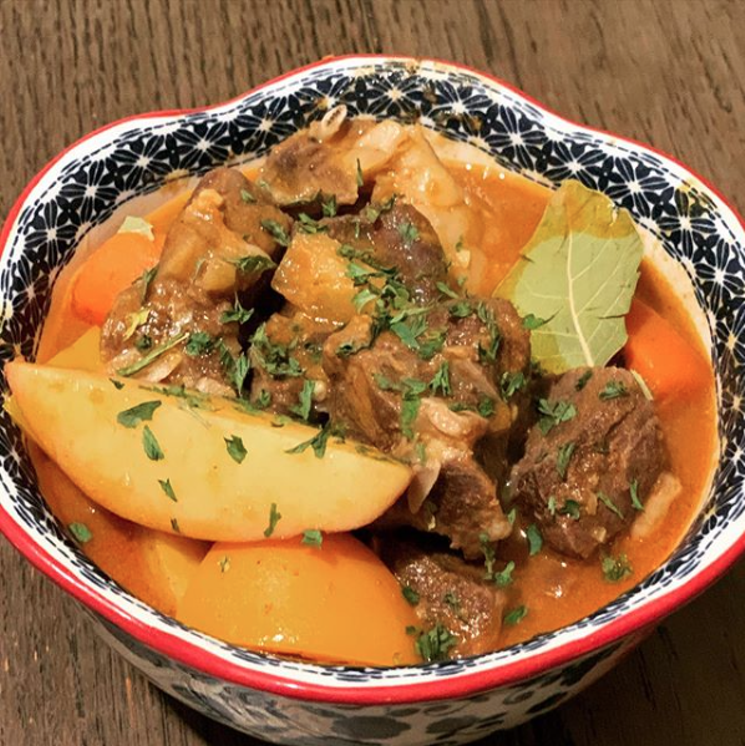
If you've never had kaldereta kambing, Orange Crunch is the place to try it.
Courtesy of Orange Crunch
“Once we started receiving that input, that’s when we really started focusing on the menu and really honing it into traditional Philippine cuisines,” Sarah continues. “We’re not only sharing our food, we’re sharing a bit of culture. … It’s not just sharing a plate of food, it’s sharing family. It’s sharing recipes that have been passed down. And [we can] extend that to the residents here in Colorado.”
“You’re always learning,” Leshner notes, referring not only to their menu items, but also to the way they approach business. The couple had hoped to debut their brick-and-mortar at the Nora Station development at East Montview Boulevard and Yosemite Street in Aurora next month, but because of COVID-related delays, they’ve had to move their opening to next spring.
The pandemic has also led to the cancellation of festivals and large events, so Orange Crunch's numbers are nothing like they were last year. Still, the Del Rosarios have been able to adapt and serve customers from their food truck from parking lots, just like in the early days of the business. They say that their ability to find the opportunities that do exist, even when not immediately obvious, continue to carry them forward despite the current obstacles.
That, and the people who support them. Because, as always, it takes a village.

